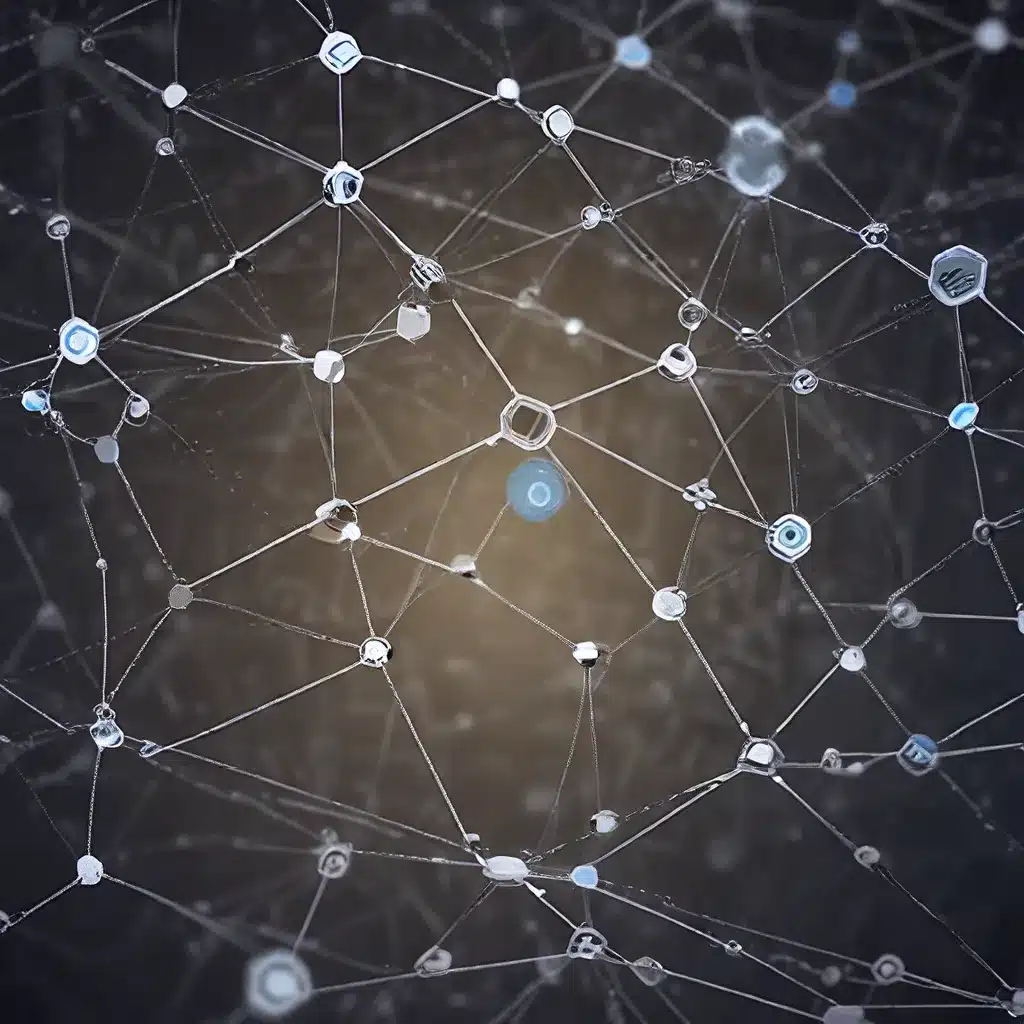
In the rapidly evolving landscape of the Internet of Things (IoT), the integration of sensor networks and blockchain technology has emerged as a transformative force. As the IoT ecosystem continues to expand, with billions of devices generating vast amounts of data, the need for secure, transparent, and traceable data management has become increasingly critical.
Empowering IoT with Blockchain Technology
The blockchain is a decentralized, distributed digital ledger that records transactions across many computers in a network. This technology offers a unique solution to the challenges faced by traditional IoT architectures, where data is typically managed by centralized authorities or cloud-based platforms.
By integrating blockchain into sensor networks, IoT applications can leverage the inherent characteristics of this innovative technology:
-
Decentralization: Blockchain networks operate without a central authority, ensuring that data is secured and validated through a consensus of network participants.
-
Immutability: Blockchain transactions are cryptographically secured and irreversible, providing a tamper-evident record of data and events.
-
Transparency: The distributed nature of blockchain allows for real-time visibility and traceability of data flows, enhancing trust and accountability.
-
Smart Contracts: Blockchain-based smart contracts can automate the execution of predetermined rules and trigger actions based on sensor data, enabling intelligent and autonomous IoT applications.
Enhancing Sensor Network Capabilities
The integration of blockchain with sensor networks unlocks a wide range of capabilities that address the challenges faced by traditional IoT systems:
Secure Data Management
Blockchain-powered sensor networks ensure the integrity and confidentiality of sensor data by encrypting and securely storing it on the distributed ledger. This mitigates the risk of data tampering and unauthorized access, a critical concern in IoT environments.
Traceable Transactions
The immutable nature of blockchain records allows for complete traceability of sensor data, transactions, and events within the IoT ecosystem. This transparency is invaluable for supply chain management, product provenance, and regulatory compliance.
Autonomous Operations
Smart contracts on the blockchain can automatically execute predefined actions based on sensor data, enabling self-monitoring and self-healing capabilities in IoT applications. This automation can optimize energy consumption, trigger maintenance alerts, and streamline decision-making processes.
Enhanced Trust and Reliability
The decentralized and distributed nature of blockchain-based sensor networks eliminates the need for a single point of failure, improving the overall reliability and resilience of IoT systems. This enhanced trust in the data and processes is particularly valuable in mission-critical applications.
Practical Applications of Blockchain-Powered Sensor Networks
The convergence of sensor networks and blockchain technology has far-reaching implications across a wide range of industries. Let’s explore some real-world applications that showcase the benefits of this innovative approach:
Supply Chain Traceability
In the supply chain domain, blockchain-enabled sensor networks can track the provenance of products from raw materials to final delivery. Sensors can monitor temperature, humidity, and location throughout the supply chain, while the blockchain records this data in a secure, transparent, and tamper-evident manner. This enhances supply chain visibility, reduces the risk of counterfeit or contaminated goods, and improves regulatory compliance.
Energy Management in Smart Grids
In the energy sector, blockchain-powered sensor networks can revolutionize smart grid management. Sensors can monitor energy production, consumption, and distribution, while smart contracts can automate energy trading, demand response, and load balancing based on real-time data. This decentralized approach empowers prosumers (producers and consumers) to participate in the energy market, enhancing grid efficiency, reliability, and sustainability.
Environmental Monitoring and Sustainability
Sensor networks equipped with blockchain technology can play a pivotal role in environmental monitoring and sustainability initiatives. Sensors can track air quality, water levels, wildlife populations, and other environmental parameters, while the blockchain ensures the integrity and transparency of the collected data. This information can inform policymakers, researchers, and conservation efforts, supporting sustainable decision-making and environmental stewardship.
Healthcare and Pharmaceutical Traceability
In the healthcare and pharmaceutical industries, blockchain-powered sensor networks can enhance drug and medical supply chain traceability. Sensors can monitor the temperature, humidity, and location of medical products during transportation and storage, while the blockchain records this data to ensure product quality and patient safety. This approach can also streamline inventory management, recalls, and regulatory compliance in the healthcare sector.
Embracing the Future of Sensor Networks
As the IoT landscape continues to evolve, the integration of blockchain technology with sensor networks promises to transform various industries and unlock new possibilities. By enhancing trust, transparency, and traceability, blockchain-powered sensor networks pave the way for more secure, efficient, and sustainable IoT applications.
Professionals, researchers, and enthusiasts in the field of sensor networks and IoT should embrace this innovative convergence and explore the myriad of opportunities it presents. By harnessing the power of blockchain-enabled sensor networks, the IoT ecosystem can unlock new levels of intelligence, automation, and collaborative potential, transforming the way we interact with the digital and physical world.
To learn more about the latest advancements in sensor networks, IoT, and blockchain technology, visit the Sensor Networks website, a leading resource for industry professionals, researchers, and enthusiasts.